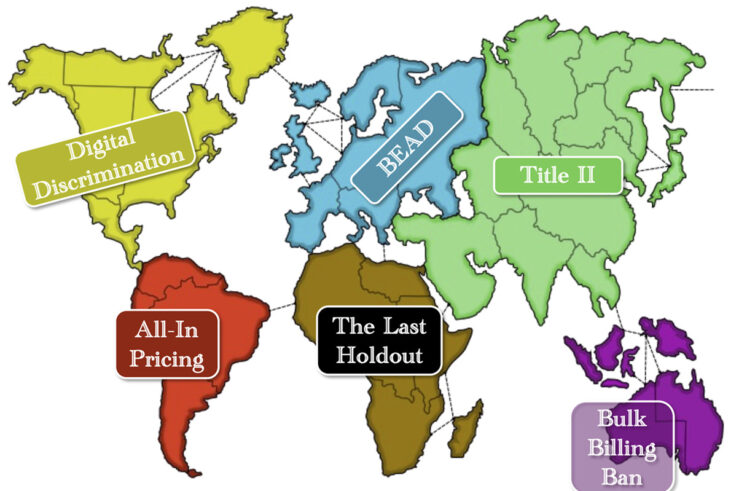John Mackey posts a remarkable public response to the FTC, including the complete text and extended exegesis of one of the inflammatory hot docs that prompted the FTC’s action. But most amazing of all is this comment:
The claims that the FTC makes in the above two paragraphs [from the FTC press release] are simply astounding because they have ZERO evidence to support several of the statements. Let’s start with the pricing issue: The FTC claims that if we “devour” Wild Oats it will mean “higher prices” and “Whole Foods likely would be able to raise prices unilaterally”. What is so interesting about this statement is that the FTC did not bother to actually gather any pricing information from Whole Foods or Wild Oats. Let me repeat that last statement because it is so important: the FTC did not bother to actually gather any pricing information from Whole Foods or Wild Oats. Why am I emphasizing this by repetition? Because the FTC did not go to the trouble of actually comparing prices in any of our markets. Nor did they ask either Whole Foods or Wild Oats for any pricing information . They asked for 20 million Whole Foods’ documents, but didn’t ask us for any pricing information! Pretty incredible in my opinion!
Now, it is possible that the FTC gathered scanner data from Nielsen or some other source, but I’m not certain that that data would be complete enough for the proper analysis. If true, I find this ommission astounding. I’ve been waiting all along for the empirical data to support the FTC’s bluster. It would be remarkable to find that data absent!
Mackey does note that the FTC (of course) gathered gross profit information for both chains. But, as I said before and as Mackey’s extended discussion confirms, that data may show nothing more than shifting market share–it does not necessarily tell you anything at all about prices to consumers.
There is much more in Mackey’s blog post, including an interesting discussion of market definition, highlighting these simple and compelling points (emphasis mine):
The fact that Whole Foods has successfully created a distinct retailing strategy and category for ourselves does not give us any kind of “monopoly” or “market dominance” that prevents other food retailers from successfully copying us or competing with us in other ways. The truth, of course, is that supermarkets all over the United States are copying many different aspects of Whole Foods successful retailing strategy—selling more and more natural and organic products, improving customer service, and upgrading the look and feel of their stores.
The creation of a unique business strategy or a unique category doesn’t force consumers to shop with us. Most successful businesses attempt to differentiate themselves from their competitors in various ways. This has certainly been one of Whole Foods competitive strategies. Although Whole Foods has been successful and has created differentiation in the marketplace the simple truth is that very few customers do all of their shopping at our stores. In fact, most of our customers shop at multiple food stores, meeting some of their needs and desires at Whole Foods and various other needs and desires at other stores. Just ask yourself this question: “Do you do all your shopping at Whole Foods or do you shop at different supermarkets”? The answer is obvious: most people shop at a variety of different food stores. Differentiation in the marketplace doesn’t guarantee customer acceptance or success. Successful differentiation also creates imitation and more competition in the future.
There are no legal “barriers to entry” to compete with Whole Foods Market on price, products, quality, service, or store experience. Whole Foods has no technological patents that preclude anyone from competing with us. Whole Foods has been successful primarily because we simply execute in many facets of the retail food business better than most of our competitors do.
Can anyone understand why the FTC brought this case?Â
(HT, for the link to Mackey’s blog, Hanno Kaiser and Randy Picker)




